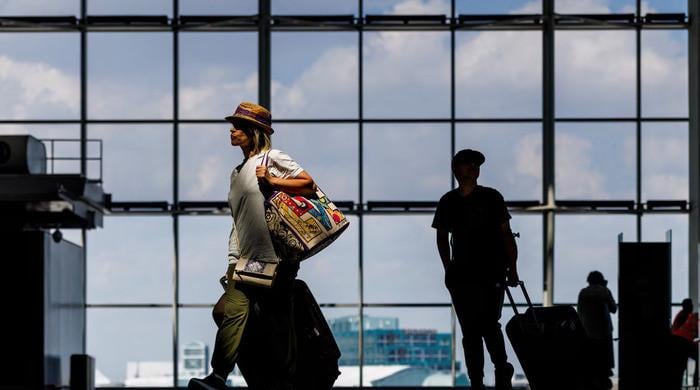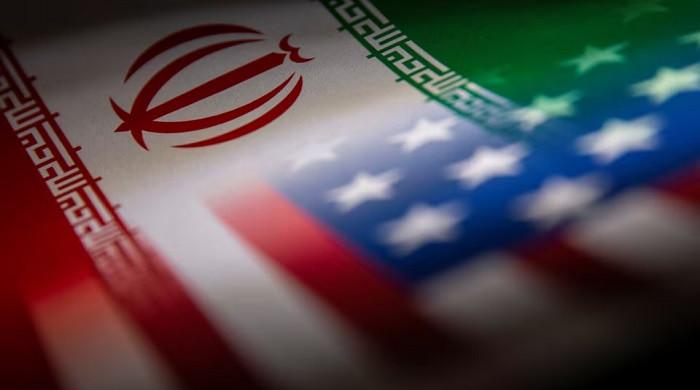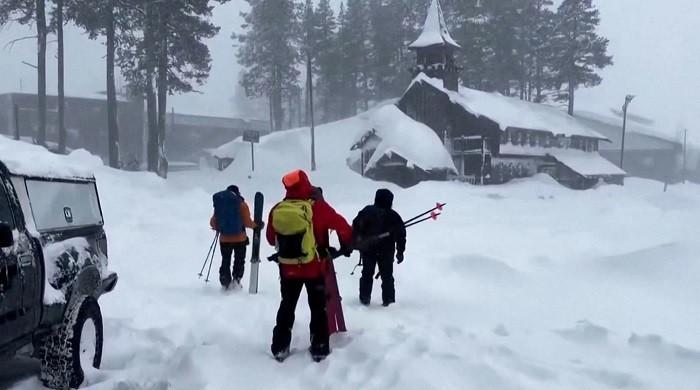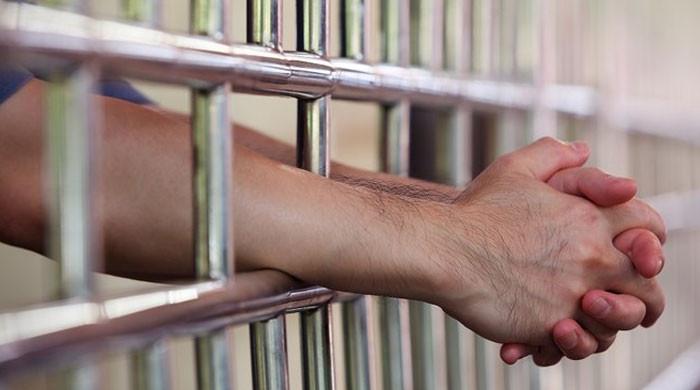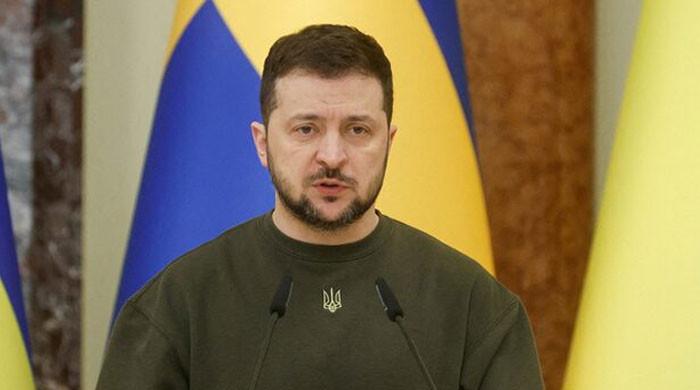Biden urges 'de-escalation', Netanyahu says will press on with Gaza attacks
Hamas says those who seek calm must "compel Israel to end its aggression in Jerusalem and bombardment of Gaza"
May 19, 2021
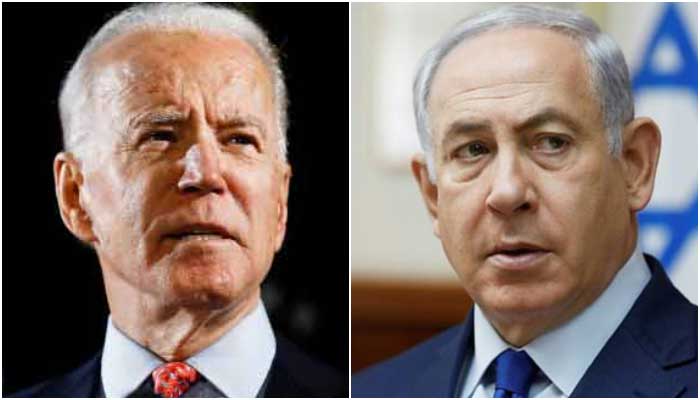
- Hamas says serious diplomatic contacts under way.
- Israel says pressing on with Gaza offensive.
- Egyptian security source says the two sides had agreed in principle to a ceasefire after help from mediators but negotiations still underway.
GAZA/JERUSALEM/ABOARD AIR FORCE ONE: Israeli Prime Minister Benjamin Netanyahu said he would press on with operations against Gaza's ruling Hamas group after US President Joe Biden urged him to seek a "de-escalation" on Wednesday in violence that has lasted 10 days and get on the path to a ceasefire.
An Egyptian security source said the two sides had agreed in principle to a ceasefire after help from mediators, although details were still being negotiated in secret amid public denials of a deal to prevent it from collapsing.
Palestinian medical officials said that since fighting began on May 10, 227 people had been killed in aerial bombardments that have destroyed roads, buildings and other infrastructure, and worsened the already dire humanitarian situation in Gaza.
Israeli authorities put the death toll at 12 in Israel, where repeated rocket attacks have caused panic and sent people rushing into shelters. Regional and US-led diplomatic efforts to secure a ceasefire have intensified but so far failed.
Netanyahu has repeatedly hailed what he has described as support from the United States, Israel's main ally, for a right to what he terms "self-defence" in battling rocket attacks from Gaza.
But Biden put the Israeli leader on notice in a telephone call that it was time to lower the intensity of the conflict.
"The two leaders had a detailed discussion on the state of events in Gaza, [...] and ongoing diplomatic efforts by regional governments and the United States," White House spokeswoman Karine Jean-Pierre told reporters.
"The president conveyed to the prime minister that he expected a significant de-escalation today on the path to a ceasefire."
'Quiet and security'
In a statement released soon after her comments, Netanyahu said: "I am determined to continue this operation until its objective is achieved — to restore quiet and security to you, the citizens of Israel."
Earlier, in remarks reported by Israeli media from a closed question-and-answer session with foreign envoys to Israel, Netanyahu was quoted as saying: "We're not standing with a stopwatch. We want to achieve the goals of the operation. Previous operations lasted a long time so it is not possible to set a timeframe."
In response to Biden's de-escalation call, Hamas spokesman Hazem Qassam said those who sought to restore calm must "compel Israel to end its aggression in Jerusalem and its bombardment of Gaza".
Once that happened, Qassam said, "there can be room to talk about arrangements to restore calm".
Hamas began firing rockets on May 10 in retaliation for Israeli rights abuses against Palestinians in Jerusalem during the Muslim holy month of Ramadan.
The rocket attacks followed Israeli security police clashes with worshippers at al-Aqsa Mosque in Jerusalem and a court case by Israeli settlers to evict Palestinians from a neighbourhood in Israeli-annexed East Jerusalem.
In a 25-minute attack overnight into Wednesday, Israel bombarded targets including what its military claimed were tunnels in southern Gaza used by Hamas.
Some 50 rockets were fired from the enclave, the Israeli military said, with sirens sounding in the coastal city of Ashdod, south of Tel Aviv, and in areas closer to the Gaza border. There were no reports of injuries or damage overnight.
Craters and rubble
Nearly 450 buildings in densely populated Gaza have been destroyed or badly damaged, including six hospitals and nine primary-care health centres, and more than 52,000 Palestinians have been displaced, the UN humanitarian agency said.
The damage has left large craters and piles of rubble across the coastal enclave.
"Whoever wants to learn about the humanity of the (Israelis) should come to the Gaza Strip and look at the houses that got destroyed on top of those who lived in them," said university lecturer Ahmed al-Astal, standing by the rubble of his house in Khan Younis in southern Gaza.
He said there had been no warning before his home was destroyed in an air strike before dawn.
Israel claims it issues warnings to evacuate buildings that are to be fired on and that it attacks only what it regards as military targets.
The hostilities are the most serious between Hamas and Israel in years, and, in a departure from previous Gaza conflicts, have helped fuel street violence in Israeli cities between Jews and Arabs.
The conflict has also spilled over to the Israel-Lebanon frontier and stoked violence in the occupied West Bank.
Four rockets were launched towards Israel from Lebanon on Wednesday, the third such incident since the Gaza conflict began, the military said. Israeli forces responded with artillery fire towards targets in Lebanon.
There was no claim of responsibility for the rocket attack.
In the West Bank, Israeli troops shot dead a Palestinian woman who the military said had fired a rifle at troops and civilians at a bus stop near the city of Hebron.
At least 21 Palestinians have been killed in clashes with Israeli troops or other incidents in the West Bank since May 10, Palestinian health officials said.
The latest deaths in Gaza included three Palestinians killed in overnight air strikes, one of them a journalist with Hamas's Al-Aqsa radio station, officials said.
Gaza medical officials say the Palestinian death toll includes 64 children, and that more than 1,600 people have been wounded since the fighting began. Israeli authorities say the death toll in Israel includes two children.




